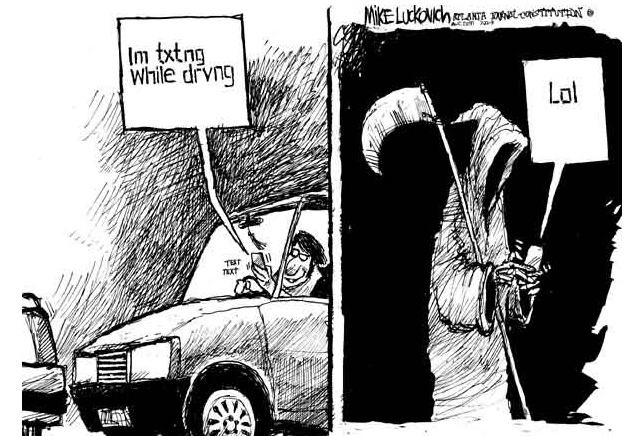1) Prepare Your Public Prayers
If you are in any form of spiritual leadership, work at your public prayers. It does not matter whether the form of spiritual leadership you exercise is the teaching of a Sunday school class, pastoral ministry, small-group evangelism, or anything else: if at any point you pray in public as a leader, then work at your public prayers.
I found this advice really helpful. I have often felt like a hypocrite for thinking it is important that my public prayers be accurate and well-spoken.
2) Learning From a Lesbian Visitor to Your Church
My friend said the conversation is usually over once the caller realizes the church holds to traditional teaching regarding sexuality. He told me he always shakes his head and thinks, Who do we think we are, that we can come to God and tell Him what we will and will not change?
You and I are like the lesbian caller.
3) Some Thoughts on Pope Francis
It’s another week and thus another interview with Pope Francis. This one, I’m sorry to say, is more than just confusing. It’s a theological wreck.
4) 10 Silly Things Christians Say
Here’s what I am learning: It is my first instinct to jump all over this stuff, to sneer and snicker, to correct and nitpick. I have an odd, inflated sense of justice when it comes to these silly, stupid phrases. Even when I’m not correcting people, I’m thinking I really ought to. But this impulse says more about me than them. It is not the Spirit of Christ to ambush my brothers and sisters with smug nitpickery. It is not the way of Jesus for Christians to mock God’s children for their affectations, to bite, to self-righteously manage, or to otherwise shame. I am not the Holy Spirit of social media.
I thought I was the wittiest Calvinist on the block. Until I followed Jared Wilson.
5) John MacArthur and Strange Fire
It’s the elephant in the room, isn’t it? We can’t all be right and we can’t both be right. Sooner or later we have to have a discussion about charismatic (continuationist) theology and whether or not the miraculous gifts of the Holy Spirit remain in operation in the church today (or, if you prefer, about cessationist theology and whether or not the miraculous gifts of the Holy Spirit have ceased in the church today). We have wanted to make sure New Calvinism is large enough for both, that it will not fracture along this particular line, and this has delayed the conversation. But at some point we just have to talk about it.
—–
Finally, Watch this:
“Your kingdom come, your will be done…”
Father in Heaven,
On this day we praise you for your goodness and mercy to us. In an act of undeserved love and grace, you gave us your Son that we might be forgiven our sin and brought back into relationship with you.
On this day we pray for the wisdom and strength to live by your will alone. For as your Son modeled for us in prayer, we desire for your will to be done “on earth as it is in heaven” (Matt. 6:10). But what does it mean, Father, for us to pursue your will in our lives?
How can I know your will? In my heart I desire to do great things for you, Oh Lord, so surely you would fulfill those desires and make much of my life? No, because it is not the deeds of a man you desire but his heart. Father, you do not call us to extraordinary things, but you call us to be obedient to the simple things you’ve laid out in your Word to us.
“For this is the will of God, your sanctification” (1 Thess. 4:3) and “give thanks in all circumstances; for this is the will of God in Christ Jesus for you” (1 Thess. 5:18). When in my heart I doubt the will of God for my life and seek grander and bigger things, I neglect and disobey the simple commands you have given me in the Scriptures. Namely, to above all else love you and love my neighbor.
For what is it to you if I preach the gospel to thousands but love my wife poorly? What is it to you if I lead multiple ministries yet fail to show compassion to “the least of these”? How can I preach the gospel if I am apathetic and negligent towards my own sin? I would but count these things as rubbish if I am consciously disobeying the simplest of commands.
Teach me what it means to be content with my daily bread. In a world that tells me “more is better”, my vision for the Bread of Life is clouded and often misguided. What I think are “Godly pursuits” are in reality an extension of my own selfish desires.
For what clearer message is there than your Son identifying himself with the “Bread of Life”, having been born in a feeding trough in Bethlehem, the “house of bread”? Surely it is this: “My grace is sufficient for you” (2 Cor. 12:9)
Father, teach me obedience. Not because I must be obedient to earn your love, but because your love and grace compels me toward obedience.
There’s no theology in today’s post, just a down-to-earth, run-of-the-mill rant.
Well, maybe I could bring in something from Solomon’s wisdom literature to apply. But that’s not the point of this post.
When I use the phrase “texting and driving,” chances are the majority of readers will admit to having done this behavior at some point in the past. Studies show that approximately 50% of the readers of this post text while driving. 77% of you think you can do it safely.
I’ll confess, there was a time in my young and foolish life where I too texted while driving. In fact, you might say I was one of the worst of offenders as I have at times had multiple electronic distractions on in my car at one time. Stupid, stupid Ben. Sometimes, I still fall into the trap of looking at my phone when I’m not at a full stop.
For the last 8 months, I’ve had a new job that has added a significant amount of time to my daily commute. By significant I mean that I used to walk to work in under 10 minutes, now it takes me about 35 minutes to drive each way.
It is a daily occurrence for me to hit a traffic snare caused by an accident. Now, I get it, they’re called “accidents” for a reason – but I don’t think that term can apply when we’re just being stupid. When we herp-a-derp and drive, bad things happen.
Texting and driving is the biggest offense of stupid “herp-a-derp” of our time. Seriously, are the numbers not enough to scare us away from doing it? Studies show that at least 23% of all accidents are caused by texting and driving. Other studies show that 18% of fatal accidents involved driver distraction.
If I told you that you had a 23% chance of getting into a serious accident and possibly death from doing ANYTHING else, would you do it? I would even give up meat and cheese if statistics showed I was 23% more likely to go to the ER from eathing them! If a large percentage like this is enough to make you give up other behaviours, then why not texting and driving?
I would really like to get to work 77% of the time without seeing an accident. I’d also like for you not to die. So please, for the sake of my road rage and the longevity of your life,
STOP TEXTING AND DRIVING.
I had previously allowed Charles Spurgeon to make an appearance and speak on predestination and election. I figured it was only fair to now hear from the great John Wesley, to hear the other side of the story.
—–
SERMON 128
FREE GRACE
(Preached at Bristol, in the year 1740)
To The Reader:
Nothing but the strongest conviction, not only that what is here advanced is “the truth as it is in Jesus,” but also that I am indispensably obliged to declare this truth to all the world, could have induced me openly to oppose the sentiments of those whom I esteem for their work’s sake: At whose feet may I be found in the day of the Lord Jesus!
Should any believe it his duty to reply hereto, I have only one request to make, — Let whatsoever you do, be done inherently, in love, and in the spirit of meekness. Let your very disputing show that you have “put on, as the elect of God, bowel of mercies, gentleness, longsuffering; “that even according to this time it may be said, “See how these Christians love one another!”
Whereas a pamphlet entitled, “Free Grace Indeed,” has been published against this Sermon; this is to inform the publisher, that I cannot answer his tract till he appears to be more in earnest. For I dare not speak of “the deep things of God” in the spirit of a prize-fighter or a stage-player.
“He that spared not his own Son, but delivered him up for us all, how
shall he not with him also freely give us all things?”
—–
1. How freely does God love the world! While we were yet sinners, “Christ died for the ungodly.” While we were “dead in our sin,” God “spared not his own Son, but delivered him up for us all.” And how freely with him does he “give us all things!” Verily, FREE GRACE is all in all!
2. The grace or love of God, whence cometh our salvation, is FREE IN ALL, and FREE FOR ALL.
3. First. It is free in all to whom it is given. It does not depend on any power or merit in man; no, not in any degree, neither in whole, nor in part. It does not in anywise depend either on the good works or righteousness of the receiver; not on anything he has done, or anything he is. It does not depend on his endeavors. It does not depend on his good tempers, or good desires, or good purposes and intentions; for all these flow from the free grace of God; they are the streams only, not the fountain. They are the fruits of free grace, and not the root. They are not the cause, but the effects of it. Whatsoever good is in man, or is done by man, God is the author and doer of it. Thus is his grace free in all; that is, no way depending on any power or merit in man, but on God alone, who freely gave us his own Son, and “with him freely giveth us all things.
4. But it is free for ALL, as well as IN ALL. To this some have answered, “No: It is free only for those whom God hath ordained to life; and they are but a little flock. The greater part of God hath ordained to death; and it is not free for them. Them God hateth; and, therefore, before they were born, decreed they should die eternally. And this he absolutely decreed; because so was his good pleasure; because it was his sovereign will. Accordingly, they are born for this, — to be destroyed body and soul in hell. And they grow up under the irrevocable curse of God, without any possibility of redemption; for what grace God gives. he gives only for this, to increase, not prevent, their damnation.”
5. This that decree of predestination. But methinks I hear one say, “This is not the predestination which I hold: I hold only the election of grace. What I believe is not more than this, — that God,, before the foundation of the world, did elect a certain number of men to be justified, sanctified, and glorified. Now, all these will be saved, and none else; for the rest of mankind God leaves to themselves: So they follow the imaginations of their own hearts, which are only evil continually, and, waxing worse and worse, are at length justly punished with everlasting destruction.”
6. Is this all the predestination which you hold? Consider; perhaps this is not all. Do not you believe God ordained them to this very thing” If so, you believe the whole degree; you hold predestination in the full sense which has been above described. But it may be you think you do not. Do not you then believe, God hardens the hearts of them that perish: Do not you believe, he (literally) hardened Pharaoh’s heart; and that for this end he raised him up, or created him? Why, this amounts to just the same thing. If you believe Pharaoh, or any one man upon earth, was created for this end, — to be damned, — you hold all that has been said of predestination. And there is no need you should add, that God seconds his degree, which is supposed unchangeable and irresistible, by hardening the hearts of those vessels of wrath whom that decree had before fitted for destruction.
7. Well, but it may be you do not believe even this; you do not hold any decree of reprobation; you do not think God decrees any man to be damned, not hardens, irresistibly fits him, for damnation; you only say, “God eternally decreed, that all being dead in sin, he would say to some of the dry bones, Live, and to others he would not; that, consequently, these should be made alive, and those abide in death, — these should glorify God by their salvation, and those by their destruction.”
8. Is not this what you mean by the election of grace? If it be, I would ask one or two question: Are any who are not thus elected saved? or were any, from the foundation of the world? Is it possible any man should be saved unless he be thus elected? If you say, “No,” you are but where you was; you are not got one hair’s breadth farther; you still believe, that, in consequence of an unchangeable, irresistible decree of God, the greater part of mankind abide in death, without any possibility of redemption; inasmuch as none can save them but God, and he will not save them. You believe he hath absolutely decreed not to save them; and what is this but decreeing to damn them? It is, in effect, neither more not less; it comes to the same thing; for if you are dead, and altogether unable to make yourself alive, then, if God has absolutely decreed he will make only others alive, and not you, he hath absolutely decreed your everlasting death; you are absolutely consigned to damnation. So then, though you use softer words than some, you mean the self-same thing; and God’s decree concerning the election of grace, according to your account of it, amounts to neither more not less than what others call God’s decree of reprobation.
10. But if this be so, then is all preaching vain. It is needless to them that are elected; for they, whether with preaching or without, will infallibly be saved. Therefore, the end of preaching — to save should — is void with regard to them; and it is useless to them that are not elected, for they cannot possibly be saved: They, whether with preaching or without, will infallibly be damned. The end of preaching is therefore void with regard to them likewise; so that in either case our preaching is vain, as you hearing is also vain.
…
17. Again: How uncomfortable a thought is this, that thousands and millions of men, without any preceding offense or fault of theirs, were unchangeably doomed to everlasting burnings! How peculiarly uncomfortable must it be to those who have put on Christ! to those who, being filled with bowels of mercy, tenderness, and compassion, could even “wish themselves accursed for their brethren’s sake!”
18. Fourthly. This uncomfortable doctrine directly tends to destroy our zeal for good works. And this it does, First, as it naturally tends (according to what was observed before) to destroy our love to the greater part of mankind, namely, the evil and unthankful. For whatever lessens our love, must go far lessen our desire to do them good. This it does, Secondly, as it cuts off one of the strongest motives to all acts of bodily mercy, such as feeding the hungry, clothing the naked, and the like, — viz., the hope of saving their souls from death. For what avails it to relieve their temporal wants, who are just dropping into eternal fire? “Well; but run and snatch them as brands out of the fire.: Nay, this you suppose impossible. They were appointed thereunto, you say, from eternity, before they had done either good or evil. you believe it is the will of God they should die. And “who hath resisted his will?” But you say you do not know whether these are elected or not. What then? If you know they are the one or the other, — that they are either elected or not elected, — all your labour is void and vain. In either case, your advice, reproof, or exhortation is as needless and useless as our preaching. It is needless to them that are elected; for they will infallibly be saved without it. It is useless to them that are not elected; for with or without it they will infallibly be damned; therefore you cannot consistently with your principles take any pains about their salvation. Consequently, those principles directly tend to destroy you zeal for good works; for all good works; but particularly for the greatest of all, the saving of souls from death.
…
24. This premised, let it be observed, that this doctrine represents our blessed Lord, “Jesus Christ the righteous,” “the only begotten Son of the Father, full of grace and truth,” as an hypocrite, a deceiver of the people, a man void of common sincerity. For it cannot be denied, that he everywhere speaks as if he was willing that all men should be saved. Therefore, to say he was not willing that all men should be saved, is to represent him as a mere hypocrite and dissembler. It cannot be denied that the gracious words which came out of his mouth are full of invitations to all sinners. To say, then, he did not intend to save all sinners, is to represent him as a gross deceiver of the people. You cannot deny that he says, “Come unto me, all ye that are weary and heavy laden.” If, then, you say he calls those that cannot come; those whom he knows to be unable to come; those whom he can make able to come, but will not; how is it possible to describe greater insincerity? You represent him as mocking his helpless creatures, by offering what he never intends to give. You describe him as saying on thing, and meaning another; as pretending the love which his had not. Him, in “whose mouth was no guile,” you make full of deceit, void of common sincerity; — then especially, when, drawing nigh the city, He wept over it, and said, “O Jerusalem, Jerusalem, thou killest the prophets, and stonest them that are sent unto thee; how often would I have gathered thy children together, — and ye would not;” ethelesakai ouk ethelesate. Now, if you say, they would, but he would not, you represent him (which who could hear?) as weeping crocodiles’ tears; weeping over the prey which himself had doomed to destruction!
25. Such blasphemy this, as one would think might make the ears of a Christian to tingle! But there is yet more behind; for just as it honours the Son, so doth this doctrine honour the Father. It destroys all his attributes at once: It overturns both his justice, mercy, and truth; yea, it represents the most holy God as worse than the devil, as both more false, more cruel, and more unjust. More false; because the devil, liar as he is, hath never said, “He willeth all men to be saved:” More unjust; because the devil cannot, if he would, be guilty of such injustice as you ascribe to God, when you say that God condemned millions of souls to everlasting fire, prepared for the devil and his angels, for continuing in sin, which, for want of that grace he will not give them, they cannot avoid: And more cruel; because that unhappy spirit “seeketh rest and findeth none;” so that his own restless misery is a kind of temptation to him to tempt others. But God resteth in his high and holy place; so that to suppose him, of his own mere motion, of his pure will and pleasure, happy as he is, to doom his creatures, whether they will or no, to endless misery, is to impute such cruelty to him as we cannot impute even to the great enemy of God and man. It is to represent the high God (he that hath ears to hear let him hear!) as more cruel, false, and unjust than the devil!




